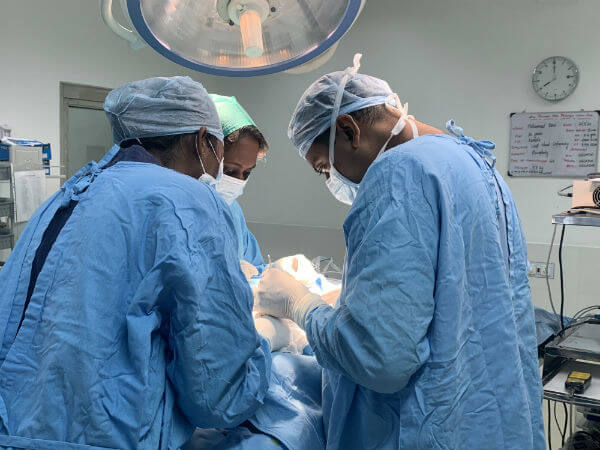Artificial Intelligence (AI) is revolutionizing numerous sectors, and healthcare is no exception. The integration of AI in surgical procedures is transforming the landscape, enhancing surgical outcomes and significantly improving patient safety. This article delves into how AI is making a difference in surgery, the benefits it offers, and the potential challenges it presents.

Understanding AI in Surgery
Artificial Intelligence in surgery refers to the use of machine learning algorithms and advanced data analytics to assist surgeons in planning, executing, and evaluating surgical procedures. These AI systems can analyze vast amounts of data, provide real-time feedback, and even perform certain tasks autonomously, thus enhancing the precision and efficiency of surgeries.
Enhancing Surgical Outcomes
Preoperative Planning
AI can significantly improve preoperative planning by analyzing patient data and predicting potential complications. Advanced imaging techniques powered by AI can create detailed 3D models of the patient’s anatomy, allowing surgeons to plan procedures with greater accuracy and anticipate challenges before they arise.
Real-Time Assistance
During surgery, AI systems can provide real-time assistance. For instance, AI-powered robots can perform repetitive and precise tasks, such as suturing, with greater accuracy than human hands. These robots can also adjust their movements based on real-time feedback, reducing the risk of human error.
Postoperative Analysis
Post-surgery, AI can analyze patient data to predict recovery trajectories and identify any signs of complications early. This enables healthcare providers to intervene promptly, improving patient outcomes and reducing readmission rates.
Improving Patient Safety
Minimizing Human Error
One of the most significant impacts of AI in surgery is its ability to minimize human error. By providing real-time data and feedback, AI systems help surgeons make more informed decisions. Moreover, AI can monitor vital signs and other critical parameters during surgery, alerting the surgical team to any anomalies that require immediate attention.
Precision and Consistency
AI-powered surgical robots bring a level of precision and consistency that is difficult to achieve with human hands alone. These robots can execute complex procedures with minimal invasiveness, reducing the risk of complications and speeding up recovery times.
Enhanced Monitoring
AI systems can continuously monitor patients’ conditions, both during and after surgery. This continuous monitoring allows for the early detection of potential issues, ensuring that patients receive timely and appropriate care.
Challenges and Considerations
Data Privacy and Security
The use of AI in surgery involves the collection and analysis of vast amounts of patient data. Ensuring the privacy and security of this data is paramount. Healthcare providers must implement robust data protection measures to prevent breaches and ensure patient confidentiality.
Integration with Existing Systems
Integrating AI systems with existing surgical and hospital infrastructure can be challenging. There may be compatibility issues, and healthcare providers may need to invest in new technologies and training programs to effectively utilize AI.
Ethical and Legal Implications
The use of AI in surgery raises several ethical and legal questions. For instance, who is liable if an AI system makes an error? Establishing clear guidelines and regulations is essential to address these issues and ensure that AI is used responsibly in healthcare.
The Future of AI in Surgery
The future of AI in surgery looks promising. As technology advances, AI systems will become even more sophisticated, offering greater precision and reliability. Future innovations may include AI-powered diagnostic tools that can detect diseases at their earliest stages, personalized surgical plans based on genetic data, and fully autonomous surgical robots capable of performing complex procedures without human intervention.
Conclusion
The impact of AI on surgical outcomes and patient safety is profound. By enhancing precision, minimizing human error, and providing real-time assistance, AI is revolutionizing surgery and improving patient care. However, it is crucial to address the challenges and ethical considerations associated with its use to fully realize its potential. As we move forward, the integration of AI in surgery will undoubtedly continue to evolve, offering new possibilities and transforming healthcare for the better.

